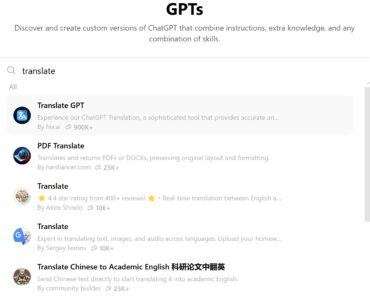Machine translation (MT) has made considerable progress in recent years. And it is poised to improve even further in the future, aided by tailwinds from the world of AI technology. But are you better off using machine translation over human translation services?
Advantages of MT over Human Translation
The obvious reason for your wanting to choose MT over human translation is cost. MT is free or nearly free (e.g. if you are using an API-driven service which charges for use). Human translation services will never be free, unless your sister or brother-in-law are in the business and are willing to help you out. (Hint: if you ask them to give you free service they may not answer your phone calls afterwards). MT has other advantages, such as speed, especially for large volumes of text.
Advantages of Human Translation over MT
But other than cost, human translation is much better than MT for the following reasons:
Privacy and Security: Some documents require utmost confidentiality, privacy and security. Uploading sensitive documents to the cloud can result in a data breach. Human translators can adhere to confidentiality protocols, which might be challenging for machine translation systems to guarantee. See related post from the GTS blog, The Dangers of Using MT for Legal Translation.
Contextual Understanding: Human translators possess the ability to understand the nuances, idiomatic expressions, cultural references, and context-specific meanings that can be challenging for machine algorithms to capture accurately. They can decipher the intended meaning even when the language used is ambiguous or relies on context.
Cultural Sensitivity: Languages are deeply tied to cultures, and certain phrases or concepts may not have direct equivalents in other languages. Human translators can navigate these cultural subtleties and ensure that the translation is sensitive to the cultural norms and values of the target audience.
Regional Preferences: MT tends to be a catchall solution for an entire language. But as anyone knows, language use varies depending on the locale and region. Latin American Spanish is spoken in many countries, each having its own variances. The same goes for French and Portuguese. The same MT output may not be suitable for all countries in which the language is spoken. A professional translation service will be to adapt the language to the target country with much greater accuracy.
Creative and Literary Works: Translating literary works, poetry, marketing content, and creative writing requires not only a deep understanding of the language but also creative flair. Human translators can capture the essence, tone, and emotions conveyed in the original text, preserving the artistic and emotional aspects of the content. MT is useless when translating prose such as poems, songs and other free-style texts.
Subject Matter Expertise: Specialized fields like legal, medical, technical, and scientific documents may require domain knowledge to accurately convey complex concepts. Human translators with expertise in these areas can ensure accurate translations that maintain the integrity of the content.
Adaptation and Localization: Effective translation often involves adapting the text to suit the target audience’s preferences, cultural norms, and linguistic nuances. Human translators can tailor the content to resonate with the local audience, making the message more relatable and effective.
Quality Assurance: Human translators can review and refine their work to ensure accuracy and consistency. They can catch errors, inconsistencies, and misinterpretations that might not be evident to machine algorithms.
Changing Language Dynamics: Languages evolve over time, and new phrases, slang, and idioms emerge. Human translators stay current with language trends and can incorporate these changes more effectively than machines.





